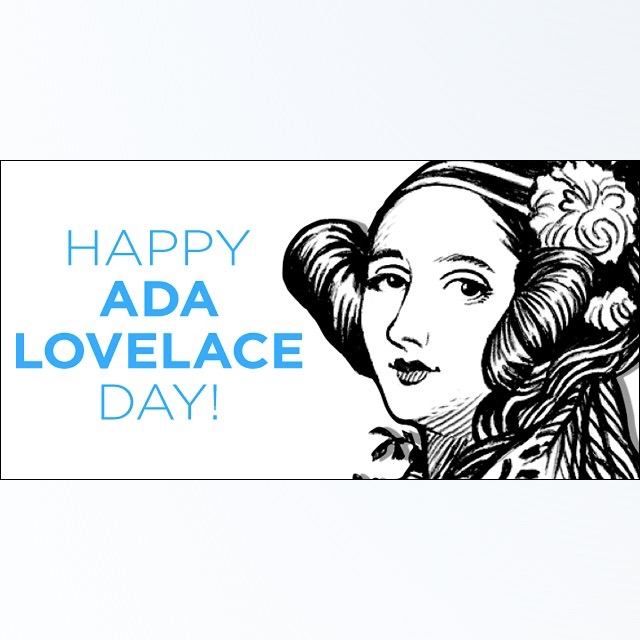20/10/2016 - News
Happy Ada Lovelace Day 2016!

 Reading time: 1.5 minutes
Reading time: 1.5 minutesAda Lovelace Day, Tuesday 11 October 2016. Ada Lovelace Day (ALD) is an international celebration day of the achievements of women in science, technology, engineering and maths (STEM). It aims to increase the profile of women in STEM and, in doing so, create new role models who will encourage more girls into STEM careers and support women already working in STEM.
Ada Lovelace Day was created to celebrate one of the first computer programmers. As the daughter of the poet Lord Byron, Augusta Ada Byron, was brought up by her mother, Annabella, after he passed. Her mother feared that she would inherit her father’s poetic temperament, and gave Ada a strict upbringing of logic, science and mathematics. Ada became fascinated with mechanisms and designed steam flying machines, poring over the scientific magazines of the time and embracing the British Industrial revolution.
In 1833, Ada Lovelace was introduced to Charles Babbage whom she helped to develop a device called The Analytical Engine; an early predecessor of the modern computer. Lovelace and Babbage worked together closely for many years in order to refine the Engine. Ada found relative fame in 1842 when she expanded on an article by an Italian mathematician, in which she elaborated on the use of machines through the manipulation of symbols. Although Babbage had sketched out programs before, Lovelace’s were the most elaborate and complete, and the first to be published; so she is often referred to as “the first computer programmer”.
Ada Lovelace died of cancer at the age of 36 a few short years after the publication of “Sketch of the Analytical Engine, with Notes from the Translator”. The Analytical Engine remained a vision for many but until Ada’s notes inspired Alan Turing to work on the first modern computers in the 1940’s.
Her passion and vision for technology have made her a powerful symbol for women in the modern world of technology.
Today is also the International Day of the Girl Child:
There are 1.1 billion girls today, a powerful constituency for shaping a sustainable world that’s better for everyone. They are brimming with talent and creativity. But their dreams and potential are often thwarted by discrimination, violence and lack of equal opportunities. There are glaring gaps in data and knowledge about the specific needs and challenges that girls face.
What gets counted, gets done. The theme for this year’s International Day of the Girl Child, on 11 October, “Girls’ Progress = Goals’ Progress: A Global Girl Data Movement”, is a call for action for increased investment in collecting and analyzing girl-focused, girl-relevant and sex-disaggregated data. One year into the 2030 Agenda for Sustainable Development, improving data on girls and addressing the issues that are holding them back is critical for fulfilling the Sustainable Development Goals

